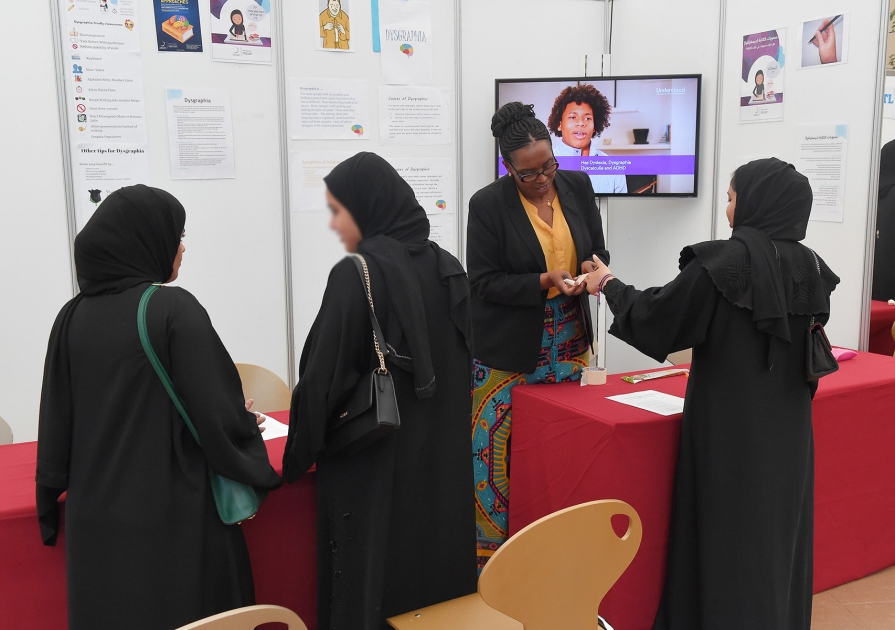
Zayed University: Any Student Might Experience Learning Difficulty Disorders, Experts
The Student Accessibility Services Department SAS at Zayed University, has recently organized their first annual Learning Difficulty Awareness Day at both university campuses.
The “Learning Difficulties, Different Approaches” campaign, hosted a number of workshops, simulation activities and challenge stations that described several learning difficulty disorders and various approaches used to overcome such obstacles. The event welcomed hundreds of students and ZU community members.
Learning difficulty disorders such as Attention deficit hyperactivity disorder (ADHD), Dyslexia, Dyscalculia, Dyspraxia, Dysgraphia, and Memory, could be faced by any student, field experts reveled during the event’s interactive sessions.
Speaking of the event, Fatma Al Qassimi, Director, Student Accessibility Services Department, said, “We want to shed light on learning difficulties, their types and syndromes for students to to step forward and raise their hands when noticing any learning challenges.”
She mentioned that many students are struggling with education due of learning difficulties, “Over 90 students at Zayed University were recorded at SAS with a learning difficulty disorder, and the numbers are on the rise each year.” She also urged other educational institutions and the society to arrange similar venues, and interactive sessions, to educate the students and the attendees about difficulties they weren’t aware of.
Each semester, SAS specialists approach ZU students during their classroom lectures to assess their learning intake ability, “We normally meet with professors, and they report a list of students that may require attention due to their learning incapability or difficulty,” Al Qassimi added.
Speaking of how learning difficulty impacts your daily life, Marjorie Daniel, Learning Disability Specialist at ZU SAS, said, “When a disconnect occurs between what your muscles want to do and what you actually execute, then Dyspraxia is the cause, it’s a developmental disorder of the brain in childhood, causing difficulty in activities requiring coordination and movement.”
“Using our station in today’s event we’re having the participants simulate how it is to have Dyspraxia, by limiting the usage of all their finger to write, and almost all participants failed to write their names,” she added.
Daniel showcased other forms of learning difficulty disorders that anyone might unnoticeably obtain, “Dyspraxia is just one out of many other disabilities that could impact the students learning capability. It is very important for students to visit our center to address such challenges, and we shall provide the required approaches and tools to aid them,” she said.



























